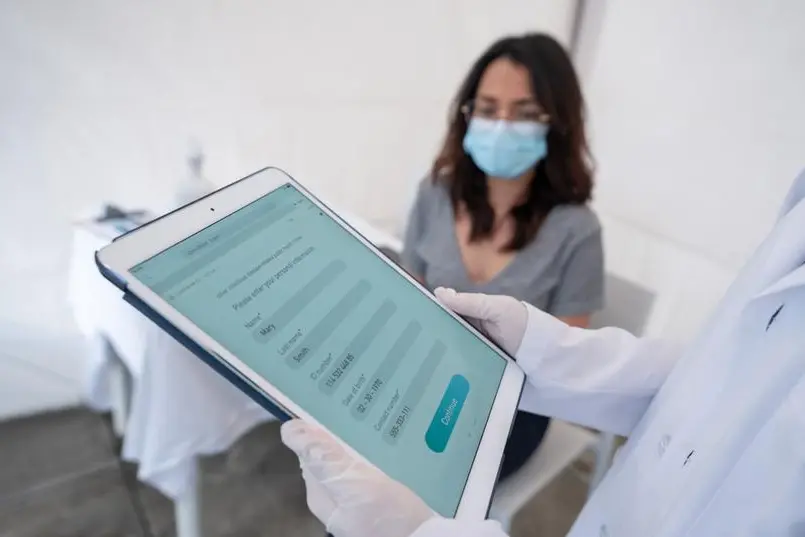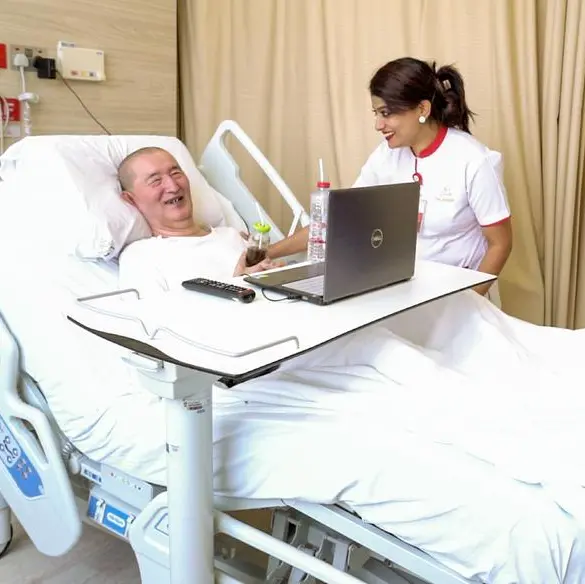PHOTO
Muscat: Top priority has been accorded to developing a decentralized health system of international standards, Dr. Hilal bin Ali al Sabti, Minister of Health said in response to the Vision 2040 Implementation Follow-up Unit's annual report.
The Ministry seeks to raise the life expectancy to to 70 years by 2040 from 64.7 years in 2022 by developing hospitals and health centers increasing their capacity, and investing in modern medical technology.
Achieving a healthy society requires increased investment in preventive programs that are considered important to reduce the burden of morbidity and preventable health challenges, such as early screening for some types of cancers or expanding some preventive programs such as screening for hereditary blood diseases and screening early
the chronic diseases.
Universal Health Coverage Program
The Universal Health Coverage Program includes projects such as the 'Expanded Program on Immunization,' which aims to expand the scope of vaccinations for the Human papillomavirus (HPV), influenza, and meningitis.
The Ministry has expanded health screenings during pregnancy and after childbirth, including an early newborn screening program that covers 22 metabolic diseases.
These efforts have resulted in a significant decrease in maternal and child mortality rates. In the field of environmental health, the Ministry focuses on expanding environmental screenings to detect toxins and pollutants to ensure a healthy and safe environment, which enhances the health of society in general.
Combating non-communicable diseases such as diabetes and cardiovascular diseases occupies an important place in the Ministry’s strategy, which works to implement a national plan to prevent these diseases and raise community awareness about the importance of adopting healthy lifestyles.
The Ministry also seeks to enhance the capabilities of the health system to combat infectious diseases and achieve development in the fields of organ transplantation and artificial intelligence, which contributes to improving health services.
Organ transplantation
The Ministry issued a regulatory regulation that sets precise standards to protect the rights of donors and beneficiaries, and allows organ donation after death according to a written will or with the consent of the guardian.
The first phase (2023-2024) witnessed a significant increase in kidney, liver and cornea transplants, with plans to start heart and lung transplants by 2026 in the second phase.
The national genomic database is an important project in the Sultanate of Oman, as the country suffers from high rates of genetic diseases. The project includes securing genomic data and improving diagnosis and treatment by providing a comprehensive genomic database. It aims to enhance the knowledge-based economy and save millions of Omani riyals in healthcare costs.
National Digital Health Strategy
The National Digital Health Strategy aims to use Fourth Industrial Revolution technologies such as virtual medicine, artificial intelligence, and big data to improve health care. Important strategic projects include the visual and digital identity project for health institutions, establishing a company that provides innovative digital health solutions, and achieving full cloud transformation by 2025.
The use of artificial intelligence in health care includes improving medical diagnosis, analyzing medical data, and early detection of diseases. Technologies such as 3D printing and robotics are helping to deliver personalized healthcare, while the National Center for Virtual Health is seeking to enhance digital healthcare.
The expatriate medical examination service has been transferred to the private sector alongside new procedures for dealing with and treating latent tuberculosis when launching IGRA examinations within the fitness program for expatriate labor. A strategy has been developed to electronically link with the Royal Oman Police the process of authenticating external fitness certificates before issuing visas.
Kidney transplants
The concerted efforts between the government sectors and public and private health institutions to achieve health security and to improve the quality of life from complications of kidney failure have achieved success with the kidney transplant program from living donors increasing the number of kidney transplant operations at the Royal Hospital to 311 operations. It is expected that the number of operations that the hospital will perform in 2024 will be about 40 to the previous annual revenge of 12 to 14.
It may be noted that 99 percent of births are under medical supervision.
The health plan includes implementation of the policy of routine HIV testing for patients admitted to internal medicine departments from the age of 16 to 65 years in reference hospitals and state hospitals for general evaluation and opening 14 clinics to treat HIV in all governorates.
2022 © All right reserved for Oman Establishment for Press, Publication and Advertising (OEPPA) Provided by SyndiGate Media Inc. (Syndigate.info).





















